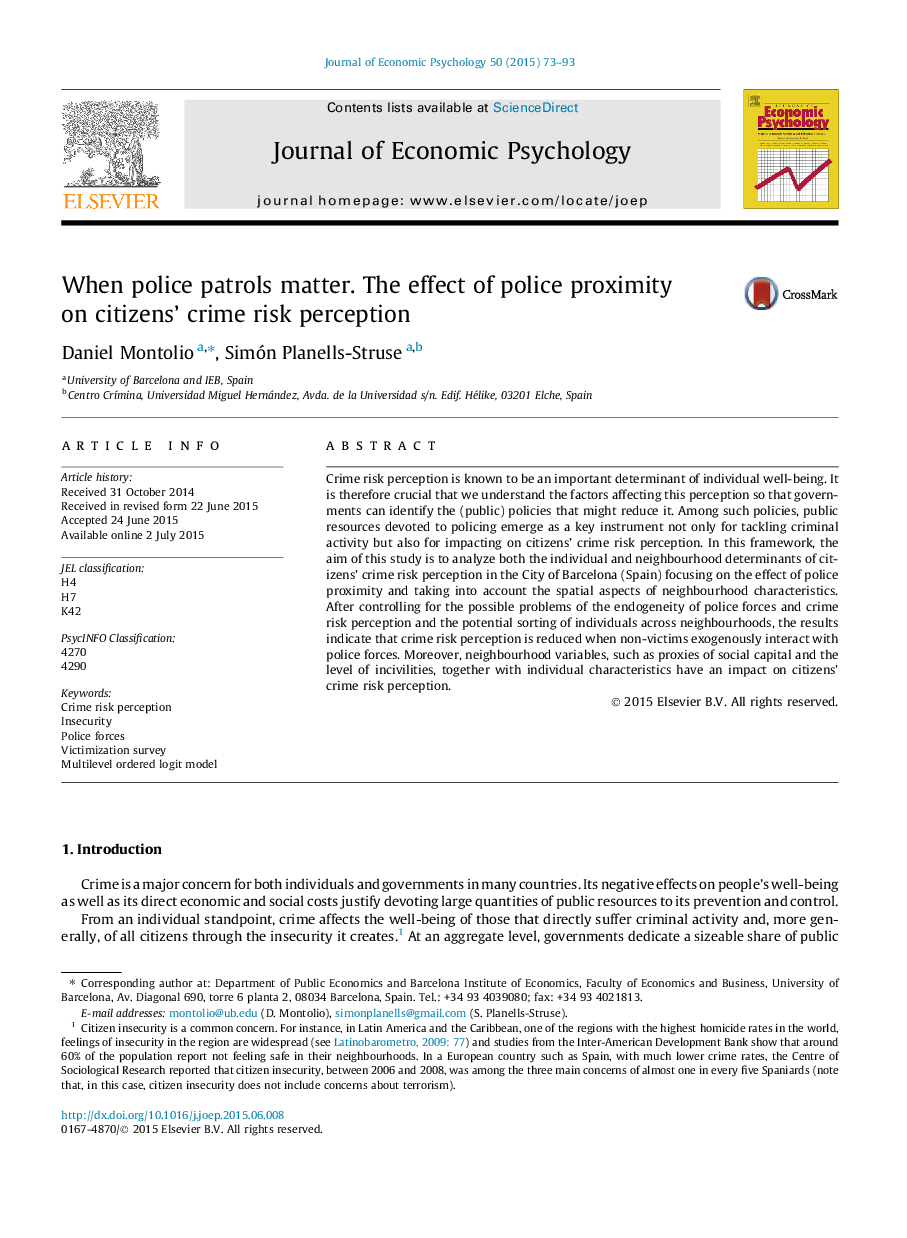| Article ID | Journal | Published Year | Pages | File Type |
|---|---|---|---|---|
| 7244589 | Journal of Economic Psychology | 2015 | 21 Pages |
Abstract
Crime risk perception is known to be an important determinant of individual well-being. It is therefore crucial that we understand the factors affecting this perception so that governments can identify the (public) policies that might reduce it. Among such policies, public resources devoted to policing emerge as a key instrument not only for tackling criminal activity but also for impacting on citizens' crime risk perception. In this framework, the aim of this study is to analyze both the individual and neighbourhood determinants of citizens' crime risk perception in the City of Barcelona (Spain) focusing on the effect of police proximity and taking into account the spatial aspects of neighbourhood characteristics. After controlling for the possible problems of the endogeneity of police forces and crime risk perception and the potential sorting of individuals across neighbourhoods, the results indicate that crime risk perception is reduced when non-victims exogenously interact with police forces. Moreover, neighbourhood variables, such as proxies of social capital and the level of incivilities, together with individual characteristics have an impact on citizens' crime risk perception.
Keywords
Related Topics
Social Sciences and Humanities
Business, Management and Accounting
Marketing
Authors
Daniel Montolio, Simón Planells-Struse,
